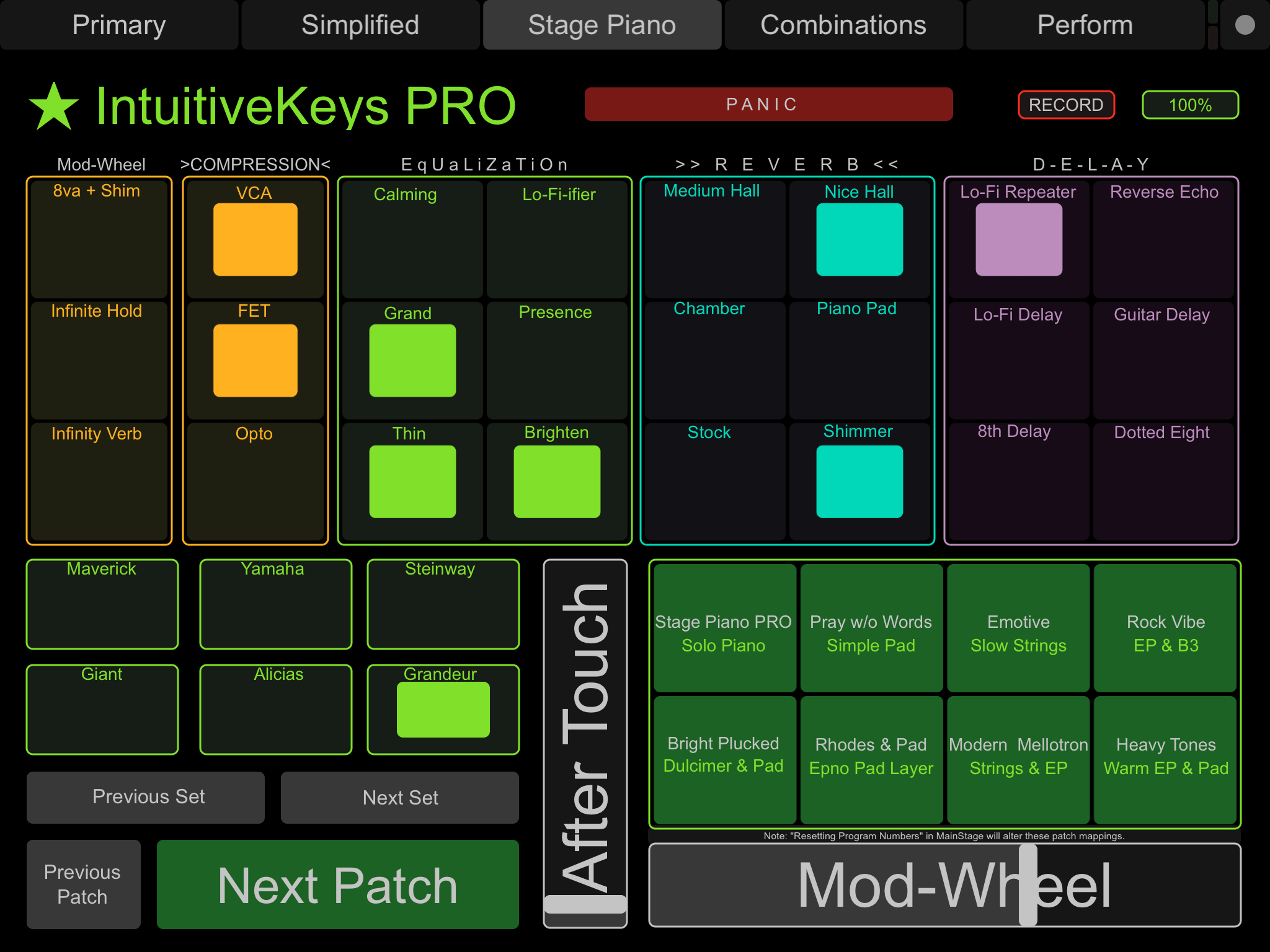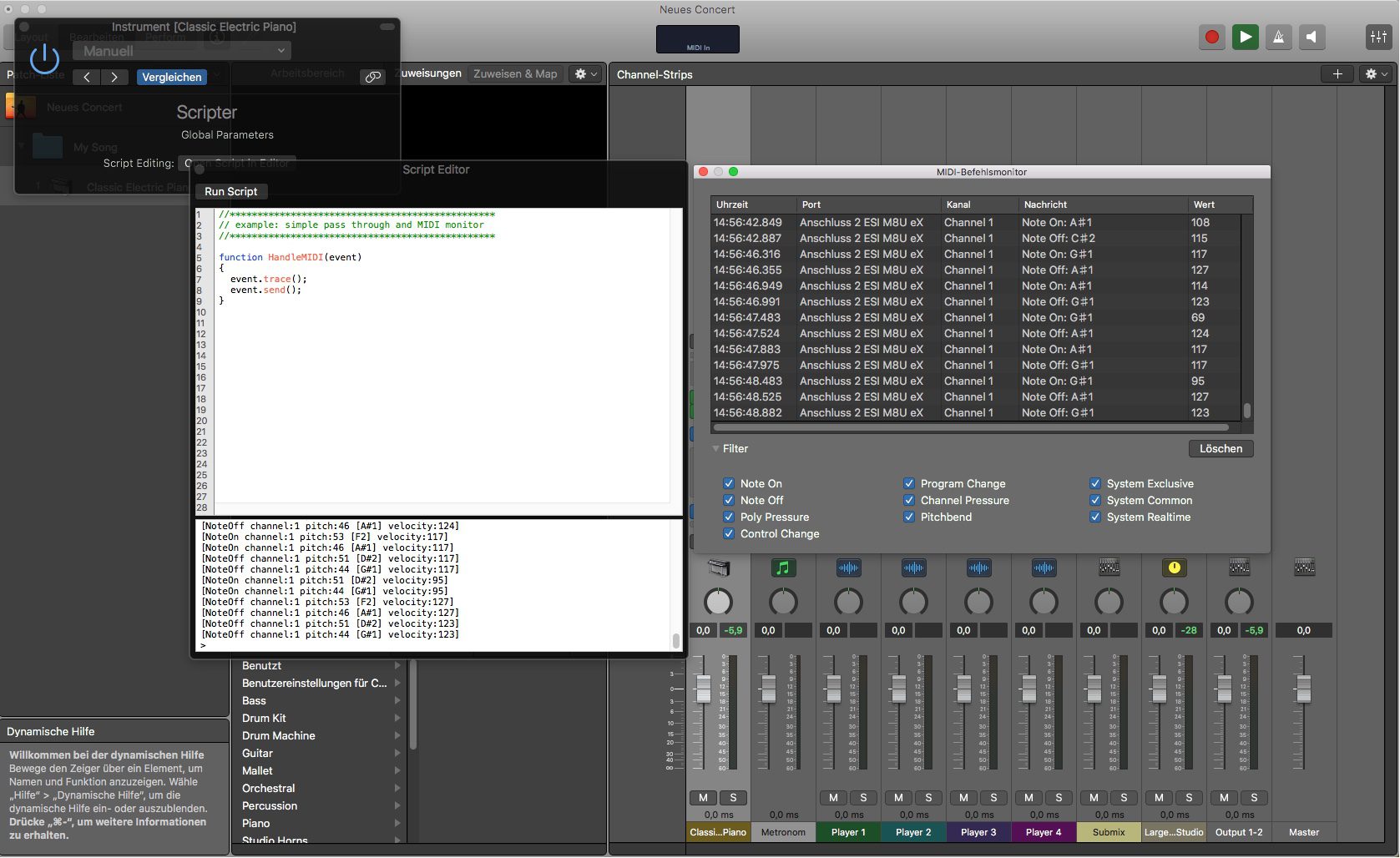

- #Apple mainstage layout mode how to
- #Apple mainstage layout mode mod
- #Apple mainstage layout mode Patch
- #Apple mainstage layout mode full
#Apple mainstage layout mode full
A Brass patch may contain Full Brass, Trumpet, French Horn Section, etc. For example, a Strings patch may contain Strings, Marcato Strings, Tremolo Strings, etc. For shows with a lot of sounds, we create a patch for each instrument family with channel strips for all the different sounds.We typically create a set at the end of the concert, and organize it in two different ways depending on how many sounds are needed for the show. There are a few ways to create a sounds folder. Aliasing from the sounds folder reduces CPU and RAM usage, and makes organization easier.You won’t have to go hunting through a concert to find a specific sound to copy and paste.Many keyboard books re-use the same sounds, so you’ll have quick access to all your sounds.Creating a Sounds FolderĬreating a sounds folder can be a huge timesaver, and here’s why. Expression should always be filtered out because volume control is already mapped to Output 1 – 2.
#Apple mainstage layout mode mod
If a sound, such as B-3 organ or a synth lead, requires the mod wheel or pitch bend, don’t filter those controllers for that specific channel strip. It ensures channel strips won’t be affected by accidental controller movement.įor most channel strips, you should filter out pitch bend, modulation, and aftertouch. Thus, it’s best to filter out unneeded controllers. Just because a patch doesn’t require modulation doesn’t mean it won’t respond to mod wheel movement. Think of how many patches in a typical show actually require pitch bend, modulation, and aftertouch - probably less than 10. In the Channel Strip Inspector for instrument channel strips and external instrument channel strips, it’s possible to filter out unneeded controllers. MainStage’s channel strips respond to standard controllers including pitch bend, sustain, modulation, expression, and aftertouch. If you’re running a MainStage concert with multiple outputs, you can map the expression pedal to control the volume for all outputs in this menu.

If you mapped everything correctly, you should see your Output 1 – 2 volume fader move with the expression pedal. By default, the value for Ranged Max is +6.0 dB, so make sure you change that to 0.0 dB. The mapping that we’re after is Volume inside the Output 1 – 2 folder. You should now see a menu like the one below in the Screen Control Inspector at the bottom of your screen.īy default, the expression pedal is mapped to Same as Input. To change the mapping, click on the Expression Pedal row. 11 is the MIDI continuous controller (CC) number for expression. In our example screenshot, the expression pedal’s screen control is named “Expression Pedal,” and it’s currently mapped to 11 (Expression). View your Assignments & Mappings in Edit Mode, and you should see something like this. The solution to this is to map the expression to control Output 1 – 2 (master volume) with a range of -infinite dB to 0 dB, and disable the expression dial control. This can lead to volume balancing issues between patches and other things you don’t want to deal with. Depending on your settings, the dials may not reset to 127 after a patch change. While this does technically allow you to control volume, it’s not the best way to do it.


In this chapter, we’ll start off with a brief discussion of keyboard programming standards, followed by a number of detailed examples. After that, you learned about the hierarchy of a MainStage concert and virtual instrument and effects plugins.
#Apple mainstage layout mode how to
We then discussed how to connect your gear to MainStage. We started off by giving you an introduction to digital audio and how it relates to MainStage. By this point, you should have a good understand of how MainStage operates.


 0 kommentar(er)
0 kommentar(er)
